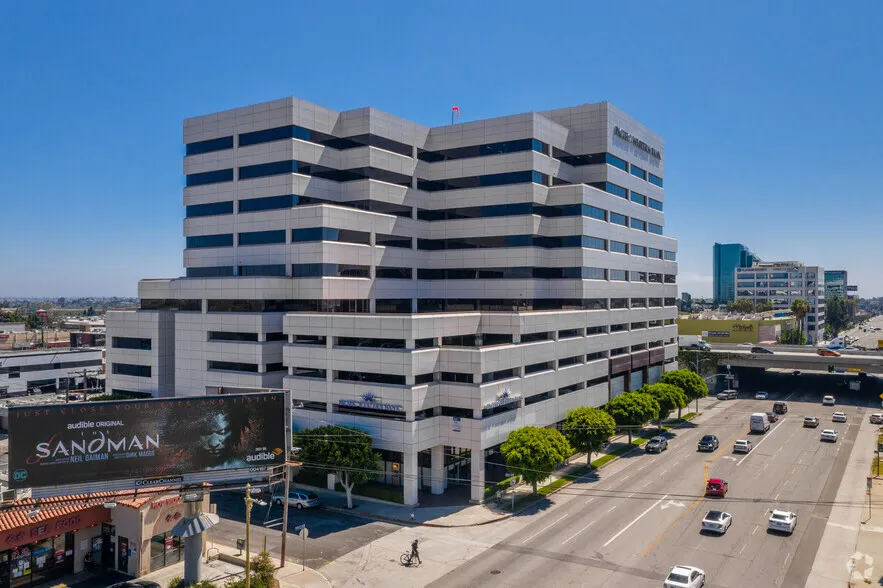Cell phone-friendly programs offer flexibility for individuals who need to stay connected during treatment. These facilities allow controlled phone use, enabling patients to maintain communication with loved ones or manage work responsibilities while prioritizing their recovery journey.
Ads
More Info
Advertisement Disclosure
Our website is funded by advertisers who pay for prominently labeled placements.
Read More13 Rehab Centers were found
Filters
Locations
- Los Angeles(+98)
- Culver City(+14)
- Westlake Village(+13)
- Woodland Hills(+11)
- Beverly Hills(+10)
- Santa Monica(+9)
- Sherman Oaks(+7)
- West Hollywood(+6)
- Malibu(+5)
- Chatsworth(+5)
- Pasadena(+5)
- Encino(+5)
- Redondo Beach(+4)
- Lancaster(+4)
- Reseda(+4)
- Studio City(+4)
- Northridge(+3)
- San Mateo(+3)
- Lynwood(+3)
- Vernon(+3)
- Van Nuys(+3)
- Tarzana(+3)
- North Hollywood(+3)
- Glendale(+3)
- Gardena(+3)
- Riverside(+3)
- Granada Hills(+2)
- Shadow Hills(+2)
- Venice(+2)
- Orange County(+2)
- Pomona(+2)
- West Hills(+2)
- Valley Village(+2)
- Burbank(+2)
- Brentwood(+2)
- Long Beach(+2)
- Sun Valley(+1)
- Torrance(+1)
- San Jacinto(+1)
- San Pedro(+1)
- Upland(+1)
- Whittier(+1)
- Toluca Lake(+1)
- Thousand Oaks(+1)
- Simi Valley(+1)
- Mission Viejo(+1)
- Acton(+1)
- Beaumont(+1)
- Wilmington(+1)
- Panorama City(+1)
- Anaheim(+1)
- Laguna Hills(+1)
- Inglewood(+1)
- Alhambra(+1)
- Rosemead(+1)
- Maywood(+1)
- Manhattan Beach(+1)
- Monterey Park(+1)
- Claremont(+1)
- Covina(+1)
- La Puente(+1)
- Pico Rivera(+1)
- San Fernando(+1)
- Azusa(+1)
- Santa Fe Springs(+1)
- Glendora(+1)
- Agoura Hills(+1)
- El Segundo(+1)
- Duarte(+0)
- Sunland(+0)
- Downey(+0)
- Cudahy(+0)
- El Monte(+0)
- Compton(+0)
- Hermosa Beach(+0)
- Cerritos(+0)
- Calabasas(+0)
- Bellflower(+0)
- Bell Gardens(+0)
- Avalon(+0)
- Arcadia(+0)
- Altadena(+0)
- Paramount(+0)
- South El Monte(+0)
- Walnut(+0)
- West Covina(+0)
- Santa Clarita(+0)
- San Gabriel(+0)
- San Dimas(+0)
- Rolling Hills(+0)
- Orange(+0)
- Hawaiian Gardens(+0)
- Palmdale(+0)
- Norwalk(+0)
- Montebello(+0)
- Lakewood(+0)
- South Pasadena(+0)
- Carson(+0)
- Hawthorne(+0)
Conditions
- Drug(+278)
- Alcohol(+219)
- Mental Health(+195)
- Opioid(+193)
- Cocaine(+184)
- Trauma(+180)
- Methamphetamine(+177)
- Benzodiazepines(+174)
- Heroin(+173)
- Prescription Drugs(+159)
- Depression(+152)
- Anxiety(+149)
- Xanax(+145)
- Synthetic Drugs(+138)
- PTSD(+133)
- Adderall(+131)
- Marijuana(+112)
- Bipolar(+109)
- Ecstasy(+104)
- MDMA(+99)
- Behavioral Health(+93)
- LSD(+93)
- Psychedelics(+91)
- Fentanyl(+71)
- Stress(+71)
- OCD(+69)
- Personality Disorders(+63)
- ADHD(+61)
- Gambling(+38)
- Eating Disorders(+35)
- Anorexia(+34)
- Binge Eating Disorder(+34)
- Bulimia(+33)
- Schizophrenia(+32)
- Gaming(+28)
- Internet Addiction(+27)
- Sex Addiction(+25)
- Burnout(+23)
- Pornography(+22)
- Shopping(+10)
- Narcissism(+8)
Insurances
- BlueCross BlueShield(+129)
- Aetna(+126)
- Anthem(+105)
- Cigna(+105)
- United Healthcare(+66)
- Humana(+63)
- Optum(+53)
- Medicaid(+53)
- MHN(+51)
- Magellan Health(+47)
- Kaiser Permanente(+39)
- Medicare(+31)
- GEHA(+31)
- ComPsych(+29)
- Highmark(+25)
- AmeriHealth(+13)
- Tufts Health(+11)
- Oscar(+9)
- CareFirst(+9)
- Molina Healthcare(+8)
- Intermountain Healthcare(+6)
- Beacon Health Options(+2)
- UMR(+2)
- NYSHIP(+2)
- ILWU(+2)
- Geisinger(+2)
- Empire Life(+2)
- Empire BCBS(+2)
- Bright Health(+2)
- GuideWell(+1)
Therapies

$30,000

$36,000 - $46,000 - 30+ days

$7,000

Call for Rates - 30-90 days

Call for Rates - 30-90 days

$5,000 - $34,500 - 30 days
Cell Phone-Friendly Rehabs: Balancing Connectivity and Recovery
Cell phone-friendly rehab programs recognize the importance of staying connected to loved ones, work, and support systems while prioritizing recovery. These facilities strike a balance by allowing limited, structured access to devices, fostering emotional stability without compromising treatment focus. Below, we explore how such programs integrate technology into care, their benefits, and key considerations for choosing the right facility.
Why Cell Phone Access Matters in Rehab
For many, phones are lifelines to family, friends, and professional responsibilities. Complete separation can heighten anxiety and deter individuals from seeking help. Modern rehabs acknowledge this by offering controlled access, which:
- Reduces isolation through regular contact with supportive loved ones.
- Encourages accountability by enabling participation in virtual support groups or recovery apps.
- Minimizes disruption to work, education, or parenting duties, easing the transition back to daily life post-treatment.
Studies suggest that maintaining trusted connections during recovery lowers stress and improves long-term outcomes. However, unrestricted access can distract from therapy, so structured policies are critical.
Core Components of Cell Phone-Friendly Programs
Structured Access Guidelines
Most facilities permit phone use during designated times (e.g., evenings or breaks) to ensure therapy remains the priority. Some implement a 3-day initial hold to help patients acclimate to treatment without distractions.
Distraction Mitigation Strategies
- Tech-Free Zones: Phones are prohibited during group sessions, meals, or mindfulness activities.
- Content Restrictions: Social media or high-risk apps (e.g., dating platforms) may be blocked to avoid triggers.
- Monitoring: Staff may review usage patterns to identify risky behaviors or provide guidance on healthy habits.
Alternative Communication Options
For facilities with stricter policies, landlines, supervised video calls, or letter-writing ensure patients stay connected without personal devices.
Benefits of Controlled Phone Use
Emotional Support
Regular check-ins with family or friends provide encouragement, reducing feelings of loneliness common in early recovery.
Continuity of Responsibilities
Parents, students, or professionals can manage obligations remotely, alleviating stress about unmet duties.
Access to Recovery Tools
Apps for meditation, sobriety tracking, or teletherapy sessions supplement in-person care. Patients can also join online sober communities for peer support.
Relapse Prevention
Learning to navigate digital triggers (e.g., old contacts or stressors) in a supervised environment builds resilience for post-treatment life.
Choosing the Right Program
- Verify Policies
Ask facilities directly about:
- Allowed usage times and restricted activities.
- Storage protocols during non-use hours.
- Alternatives if phones are prohibited (e.g., facility tablets for telehealth).
- Prioritize Accreditation
Ensure the program is licensed and staffed by professionals trained in integrating technology with evidence-based therapies like CBT or DBT.
- Assess Customization
- Inpatient vs. Outpatient: Outpatient programs often offer more flexibility for work-related phone use.
- Dual Diagnosis Care: Ensure co-occurring mental health conditions are addressed alongside addiction.
- Post-Treatment Support
Strong programs provide resources to manage phone use post-discharge, such as digital detox workshops or relapse prevention planning.
Navigating the Balance
While phones can enhance recovery, their misuse risks derailing progress. Effective programs teach patients to set boundaries, such as:
- Designating “phone-free” times for self-care.
- Curating contact lists to avoid triggering interactions.
- Using apps mindfully to avoid replacing one dependency with another.
Next Steps
If you’re seeking a rehab that respects your need for connectivity while safeguarding your recovery journey, browse our directory of accredited cell phone-friendly programs. Filter by policies, therapy types, and insurance coverage to find a center aligned with your needs.
Recovery thrives in balance. Find a program that supports your goals—both online and offline.
Frequently Asked Questions
When can I use my phone during rehab?
Are social media or dating apps permitted?
Can I work remotely while in treatment?
What if I need a digital detox?
Ads
More Info
Advertisement Disclosure
Our website is funded by advertisers who pay for prominently labeled placements.
Read More





































